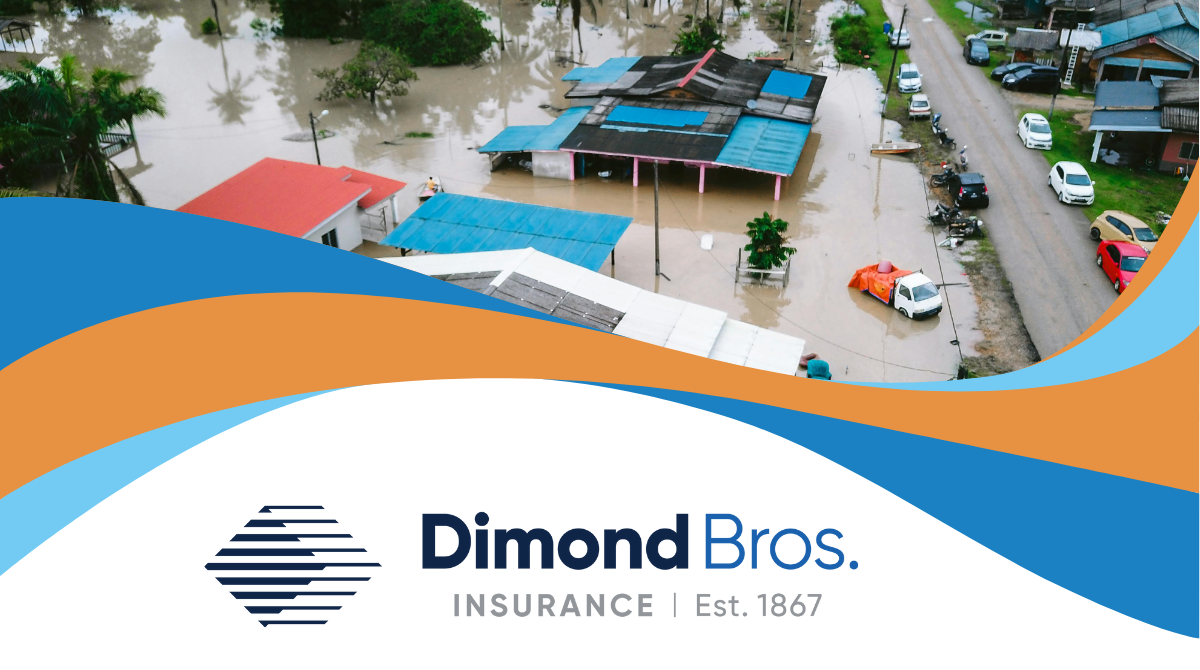April Showers bring…..possible flooding to your business property. Is your business at risk?
Introduction
As a business owner, it’s important to be prepared for potential floods, which are one of the most common hazards in the United States. According to the Federal Emergency Management Agency (FEMA), all 50 states are at risk of flooding in some capacity. In addition, a study published in the Nature Climate Change journal predicts that the annual cost of flood damage in the United States will increase by more than 25% by 2050—from $32 billion to $40.6 billion.
The impact of floods on businesses can be devasting, resulting in lost production, sales, income and labor time; transportation costs; decreased tourist activity; and utility disruptions. In fact, 40% of small businesses never reopen following a natural disaster, according to FEMA and the U.S. Department of Labor. Therefore, it’s crucial to take steps to protect your business from potential flood damage.
Review Insurance Coverage
Flooding is a cause of loss that is not typically covered by commercial property policies; businesses usually need to purchase a separate flood insurance policy. Before catastrophe strikes, it’s important to take the time to conduct a detailed insurance policy review to ensure the coverage is adequate. In fact, if your commercial property is in a high-risk flood area and you have a mortgage from a federally regulated or insured lender, you are required to purchase a flood insurance policy. Considerations when searching for a policy include:
- Policy limits: Are the building(s) and contents insured to value?
- Business interruptions: Is there coverage for a potential loss of income while the premises are unusable?
- Extra expenses: Is there coverage for any extra expenses incurred while operating the business out of a temporary location?
Prepare Your Property
FEMA reported that more than 20% of flood claims come from properties outside of flood zones. This means it’s important to take precautions to protect your property before a flood occurs, even if your business is located outside a typical flood zone. Here are some tips to prepare your property for a flood:
- Create a flood plan that includes evacuation routes; crucial business details; gas, water and electric supply information; contact sheets for people and their responsibilities; inventory and electrical equipment details; and a list of disaster recovery companies.
- Create a data backup and recovery plan so critical business data is regularly backed up and stored offsite or in the cloud since data loss can severely impact business operations.
- Utilize dry floodproofing techniques, such as keeping flood-protective materials on hand, installing watertight shields over doors and windows, and implementing flood gates or permanent flood doors.
- Raise important equipment, electrical components and documents above expected water levels and store them in waterproof and fireproof containers if necessary.
- Landscape with native plants and vegetation to prevent soil erosion and allow flood waters to drain more efficiently.
- Use flood-resistant materials for floor and wall coverings, insulation and building exteriors.
- Inspect the exterior building and roof/gutters regularly to ensure they can withstand wind and water from storms and flooding.
- Verify that all installed backflow valves and closures are functional to prevent chemicals, toxins and debris from entering clean water supplies.
- Have backup systems such as portable pumps and alternate power sources located above the base flood elevation.
- Anchor fuel tanks to prevent damage to your building or other properties downstream, along with potential leaks, fires, explosions or pollution risks.
Conclusion
Being prepared for floods is essential for safeguarding lives and minimizing the impact of these natural disasters. By understanding the causes, recognizing the signs and knowing how to respond, your business can effectively navigate the challenges of floods.
While it may seem overwhelming, you can work with qualified insurance professionals to learn more about and assist with flood preparedness practices and policies. Contact us today for more information.
